1. Obsessing Over Carry-On Size
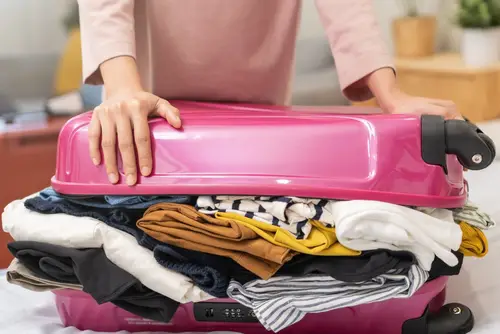
We’ve all become experts in folding clothes to maximize a tiny bag. Airlines drill the idea of strict carry-on limits into our heads, and now we treat every suitcase like a puzzle. Whether it’s a weekend trip or a grocery run, we’re constantly checking dimensions and weight. Somehow, we’ve internalized that tiny space equals efficiency and minimal stress.
Even if we’re not flying, we’ve carried the anxiety of overpacking everywhere. Closet organization now mimics airline packing hacks, with cubes and zippered compartments. The thrill of fitting everything just right feels oddly satisfying. Airlines turned this into a daily habit we never realized we were keeping.
2. Overanalyzing Security Lines

Standing in line at the airport teaches patience—or paranoia. We’ve absorbed the need to arrive hours early, remove shoes, belts, and electronics, and stress about liquids. This mindset spills into our daily routines, whether we’re at concerts, sports events, or government offices. Security prep has become a lifestyle rather than a one-time inconvenience.
Even outside airports, we can’t help but mentally prep for random checkpoints. Our keys and wallets are meticulously organized. We now subconsciously double-check rules before doing almost anything outside the house. Airlines trained us to anticipate scrutiny, and it sticks.
3. Hoarding Tiny Toiletries

Travel-sized shampoo and lotion aren’t just for carry-ons anymore. Once you’ve gotten used to the convenience of mini bottles, returning to full-sized products feels wasteful and clunky. We’ve learned to ration them, saving half-used bottles for trips or gym bags. The tiny containers symbolize efficiency and preparedness.
Hotels and airlines made us value portability over quantity. This habit follows us everywhere, from purses to office drawers. Even at home, we prefer the travel-sized version of almost everything. Airlines basically turned everyone into mini-bottle collectors.
4. Being Shockingly Polite to Strangers

Airlines demand patience with cramped seats, delays, and gate announcements. We’ve picked up the habit of apologizing preemptively and smiling at strangers to keep things smooth. Small talk with the person next to us or a friendly nod to a flight attendant becomes second nature. That etiquette has bled into our daily lives in supermarkets, offices, and coffee shops.
We’re conditioned to think politeness prevents conflict. Standing in line or sharing a table, we instinctively say “excuse me” or “thank you” more than before. Airlines trained us to anticipate irritation and diffuse it with courtesy. This tiny social hack has surprisingly stuck.
5. Micromanaging Snacks

Airlines taught us the joy of rationing a small snack bag to last the flight. Even when we’re not 35,000 feet up, we portion chips, granola bars, or nuts like it’s a survival mission. We’ve become surprisingly strategic about when to eat, how to store, and what to bring along. The careful planning sticks long after the tray table is stowed.
We’ve internalized the “flight snack” mindset everywhere. Movie nights, road trips, and even office snacks now follow a strict schedule. Airlines made us hyper-aware of convenience and portion control. Somehow, a mini pretzel bag feels like a triumph of planning.
6. Timing Everything Precisely
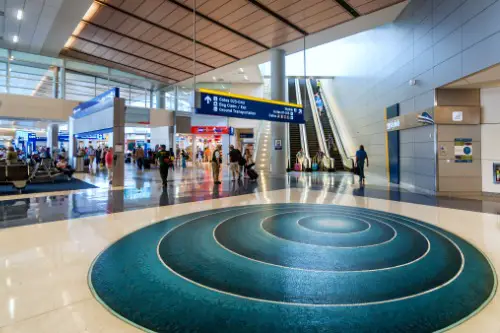
Punctuality is non-negotiable on planes, and we’ve carried that obsession into daily life. Flight schedules make us obsess over arrival and departure times. Even errands, appointments, and meetings are now treated like connecting flights. We can’t help but build buffer times like we’re avoiding missed gates.
This habit is both practical and anxiety-inducing. Calendars are color-coded, reminders are set, and lateness is almost taboo. Airlines made us plan life like a boarding pass schedule. Now every minute counts, even for lunch.
7. Mastering the Art of the Carry-On Wardrobe

Airlines encourage versatile, multi-purpose clothing. One pair of pants that works for travel and meetings, a jacket for warmth and style—it’s all part of survival tactics for air travel. Now, Americans often approach wardrobes with the same mindset, mixing function and flexibility. This habit has made packing for any trip a streamlined operation.
Capsule wardrobes are more common thanks to airline logic. We think about layering and adaptability in our daily outfits. Fashion now coexists with efficiency because airlines taught us it’s smart. Each outfit has to earn its spot in the suitcase—or closet.
8. Counting Down Boarding Groups
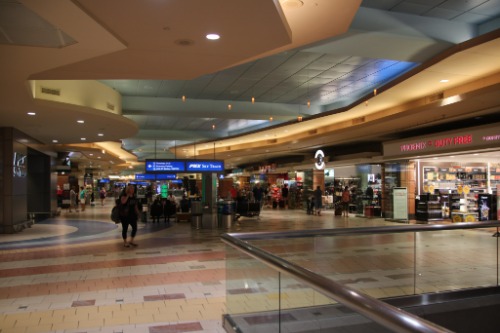
Airlines created boarding group systems to reduce chaos, and we’ve internalized the countdown mentality. We eagerly watch group numbers and gate announcements as if they’re life or death. This habit makes us hyper-aware of timing in other areas—appointment queues, restaurant reservations, and even video game lobbies. Waiting has become a quantified experience.
This counting ritual scratches a psychological itch. Checking your group, then strategizing when to line up, feels oddly satisfying. Airlines turned patience into a small, measurable game. It’s a habit that follows us well beyond the airport.
9. Obsessing Over In-Flight Announcements
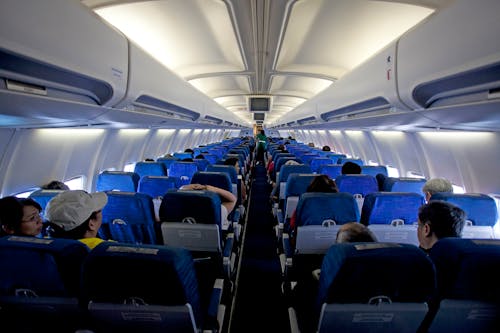
From safety videos to landing instructions, airlines train us to listen carefully. Now, we pay attention to public announcements everywhere—from bus stations to shopping malls—because we’ve developed auditory vigilance. Missing a detail feels like missing a critical piece of information. Airlines conditioned us to trust instructions from authorities, and we can’t help it.
Even at home, we subconsciously process background instructions the same way. Directions, updates, and notifications get our instant focus. That habit of acute attention started on planes and never let go. Listening is now an automatic skill we didn’t know we were learning.
10. Hoarding Frequent Flyer Points

Airlines made us obsessed with miles and loyalty programs. Even when not traveling, Americans continue to track rewards, looking for opportunities to maximize benefits. Grocery stores, credit cards, and online shopping all get scrutinized through a “points lens.” Airlines trained us to quantify value in ways that feel second nature now.
The pursuit of rewards has become almost reflexive. We compare programs, optimize spending, and check balance updates constantly. That habit began as a way to make travel cheaper or faster. Now, it’s a lifestyle of optimization and frugality.
11. Embracing the Window or Aisle Debate
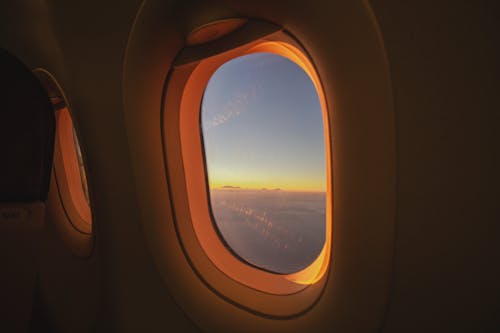
Airlines forced us to take sides: window for the view, aisle for freedom. This debate has become a microcosm of personal preference and control. We carry it into restaurants, theaters, and events, carefully choosing where to sit. Airlines conditioned us to weigh comfort against convenience, and the habit follows us everywhere.
It’s more than a seat—it’s about control and anticipation. We’ve internalized the planning that makes flights tolerable. Every decision now comes with a small mental pros-and-cons list. The window versus aisle discussion is a surprisingly enduring social habit.
12. Talking About Flights All the Time

Once you’ve flown frequently, the topic creeps into casual conversation. Americans casually discuss turbulence, layovers, and boarding experiences with friends or coworkers. Airlines made air travel a reference point for stress, adventure, and storytelling. Sharing these anecdotes becomes a cultural shorthand we never knew we were adopting.
Even non-flyers now participate vicariously, asking for tips or sharing horror stories. Flight experiences have become social currency. Airlines inadvertently created a habit of turning travel into conversation fodder. It’s a habit that keeps the sky in our daily lives, even on the ground.
This post 12 Habits Americans Picked Up From Airlines and Never Let Go was first published on American Charm.


